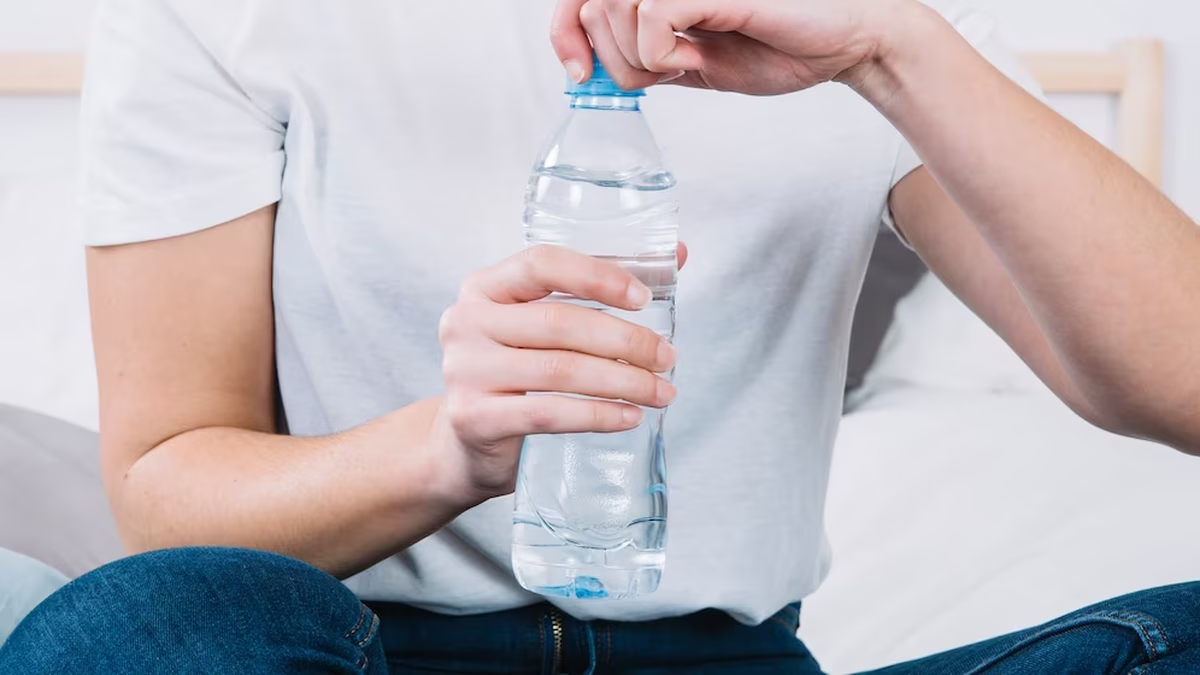The government recommended that employers in the metropolitan area provide bottled water to workers belonging to risk groups due to the increase in sodium and chlorides in the water supply. National Administration of State Sanitary Works (OSE)in a context of increasing seriousness in the water crisis It affects half the population of Uruguay.
One week was enough for the Ministry of Labor and Social Security (MTSS) will change its position regarding employers giving bottled water to their workers. Seven days ago, the holder of the wallet, Pablo Mieres, He assured that the water emergency situation at that time did not warrant companies being forced to provide bottled water to their employees.
Today, with the reserves of Severine Pass in continuous decline —they have already reached the alarming number of the 1.67%—, the number of days of drinking water in the metropolitan area and the increase in salinity in the OSE supply, above the levels allowed by the Ministry of Public Health (MSP); the MTSS changed its mind.
“There are several decrees that establish the obligation of employers to provide water both for hygiene and for human consumption,” said the General Inspector of Labor and Social Security, Tomas Tejeiro, in this regard, and added that “in the different decrees certain denominations are established: some say drinkable water, others suitable for consumption.”
The decision was made after the meeting of the National Council for Health and Safety at Work (Conassat) yesterday, with the aim of seeking progressive and rational solutions, which accompany the context. There it was determined to recommend to employers that they “follow to the letter the recommendations of the Ministry of Public Health, regarding the supply of bottled water to those groups that it has recommended as more sensitive.”
these are patients hypertensive, with cirrhosis, kidney problems, pregnant, the inspector explained. “At least a liter,” he stressed.
Severino Pass Florida Water Crisis Drought
In Paso Severino there is barely 1.67% of water left to supply the Uruguayan metropolitan area.
Photo: @Estacion_bcp
The water situation is increasingly critical
With no heavy rains forecast in the short term, Presidency reported last night that the water reserves in the Paso Severino dam fell to 1.67% and that all the pumping lines that supply Montevideo and the metropolitan area recorded daily average chloride and sodium levels in the water above the maximum recommended by the MSP —already higher than usual.
According to information provided by OSE, the total consumption of water in Montevideo and the metropolitan area was 512,726 cubic meters, leaving the volume of the dam at 1,121,711 cubic meters —when its total capacity reaches 67 million cubic meters.
In addition, chloride and sodium levels jumped again in all the pumping lines that supply the capital and its surroundings, again exceeding the maximum values allowed by the MSP of 720 mg/l of chloride and 440 mg/l of sodium.
In that sense, in the pumping line 4 that supplies the center of the capital of the country, the measurement of the daily average of chloride reached 785mg/l and the 468mg/l of sodium. In the pumping line 5 that supplies water to the western zone of Montevideo and surroundings, the chloride reached 721mg/l and sodium to 433mg/l. In turn, in the pump line 6 that supplies the east of the capital and its surroundings, the daily chloride records were 773mg/l and those of sodium 461 mg/l.
Source: Ambito




